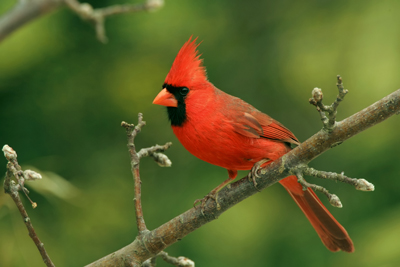
 |

|
In my family, my mother had a unique way of calling us two boys to dinner, or to come in from play in the evening, or to catch our attention in a crowded store. She would whistle—but not just any high-pitched sound, and not any song fragment that other people might recognize. Her whistle was a long note at one pitch, followed by three shorter notes at a lower pitch: TWEE-too-too-too.1
For all my adult life, I thought this whistle was something unique to my mother, as all mothers are unique and awesome to their small sons. But then, about a year ago, I was talking to my cousin, who lives in Cleveland. She said she had recently heard a bird in her backyard giving out the “family whistle.” It seems that her mother also called to her and her sister using the same whistle. Once, my cousin recalled, when she was a toddler and couldn’t whistle, she got lost at the grocery store and stood in the aisle yelling, “Fwee-foo-foo-foo!” She also said our grandfather, the Judge, used to call his dogs in from the back porch using this same whistle.
At the time, my cousin thought the birdsong was that of a sparrow, but she wasn’t really sure, as she never saw or identified the bird. Listening to random recorded bird calls online didn’t seem to help, either. So this year, as a project, she went to a birdwatching group while she was visiting the Chautauqua Institution in Upstate New York. She imitated the whistle, and they told her it was the song of a cardinal—and that cardinals are unusual in that both the males and females sing.2
So human families can acquire particular songs and pass them down through the generations, just as birds do. If I could whistle, and had to call my children or my dogs, I would use TWEE-too-too-too myself. It would just seem natural.
Birds have particular calls that appear to be learned from their elders, are subject to stutters and other speech defects that run in families, and rely on a number of genes that are shared with human beings.
I believe the native Americans, especially in the East, also used bird calls to signal one another without alerting a nearby enemy. As a natural sound, the call would be heard and interpreted correctly only by those attuned to it and instructed as to its meaning. Perhaps an enemy might even mistake the sound for that of an actual bird. And if he did know it came from human lips, he would still have no way of interpreting its meaning—other than that a human being was close at hand and not one of his own party.
Like code words, as opposed to ciphers or other complex, alphabetical systems of secret communication, a sound, word, or other signal with a prearranged meaning is thoroughly opaque to those not in possession of the code book or not included in the briefing. A code phrase like “rocking chair” or the call of a sparrow might mean “Attack now,” “Attack on the left,” “Move to the right,” or “Fall back.” There’s just no way for an enemy to know.
In this I’m reminded of one of my favorite time-travel books, Tim Powers’s The Anubis Gates. In the story, travelers from the 20th century locate each other in 17th-century London by whistling the opening bars of the Beatles’ tune “Yesterday.” Since the song hadn’t been written yet and wasn’t based on some old English folk song, it was a foolproof recognition signal.
And finally, scientists have known for a while that certain whales signal to each other with long, complex whistling songs. We have since learned that these songs are shared and adapted among groups, evolving musically as the seasons pass. Since the songs are regularly repeated and advance with time, like the tunes on a top-ten radio station, it’s not clear what communication purpose they serve. The songs don’t seem to bear individual names or identities, like “Hello, I’m Charlie.” They don’t seem to include instructions or unique information, like “Attack at dawn” or “Find good hunting north of here.” They might be some kind of group recognition signal, on the order of “If you can sing our song, you must be one of us.” Or the songs might just be an elaborate version of “Hey, children! Time to come in now.”
But so far, it would seem that the whales sing because just they take pleasure in making these sounds, like a Venetian gondolier belting out grand opera as he sculls his boat along.
1. Since I can’t whistle, I cannot reproduce the sound myself. By playing around on the organ keyboard, however, I can represent it as a dotted half note at middle C, followed by three eighth notes in A.
2. The difference in the cardinal’s song from that of our family whistle is that the bird doesn’t limit the first part to just one note or the second to just three notes, but sometimes repeats them as many as five times.